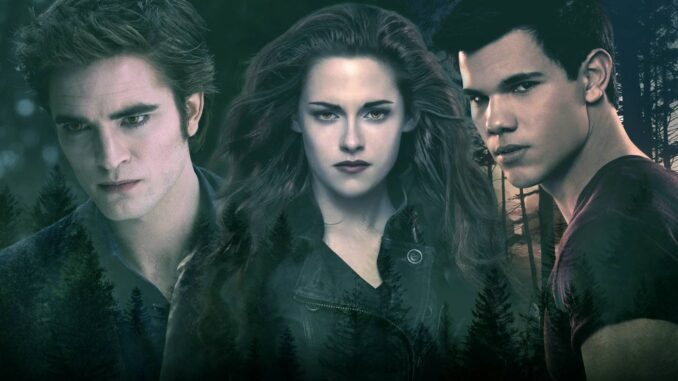
The Immortal Echo: Twilight Returns, Twenty Years On
October 2025. The chill of autumn hangs in the air, a familiar crispness that whispers of damp forests and the promise of long nights. And this year, that whisper is amplified, charged with a specific, almost mythical resonance. Because this year, Twilight returns to theaters. Twenty years have passed since Bella Swan first stumbled into the perpetually overcast town of Forks, and ignited a cultural phenomenon that continues to flicker in the collective imagination. The announcement, coded as "Celebrate 20 Years of Bella & Edward md07," sent ripples of nostalgia and feverish anticipation across the internet, sparking a conversation about the legacy of a franchise that continues to fascinate and, at times, perplex.
The initial release of Twilight in 2008 was a cultural supernova. The story, a gothic romance laced with forbidden love and supernatural peril, captivated a generation of young adults. Bella, the self-deprecating and undeniably awkward protagonist, resonated with those who felt like outsiders, searching for their place in the world. Edward, the brooding, impossibly beautiful vampire, embodied the ideal of a dangerous, yet deeply caring, lover. Their romance, a forbidden dance between mortality and immortality, resonated with the yearning for something extraordinary in the ordinary.
For me, the appeal was undeniable. As a teenager, I was swept away by the lush scenery, the melodramatic plot twists, and the sheer escapism that Twilight offered. It was a world where love conquered all, even death itself. The soundtrack became a constant companion, echoing the longing and intensity that defined the relationship between Bella and Edward. It was a heady cocktail of emotion, perfect for a young heart navigating the complexities of adolescence.
But Twilight was also, undeniably, a flawed masterpiece. Criticisms abounded regarding its problematic depiction of relationships, its reliance on outdated gender roles, and its overall narrative simplicity. The obsession with Edward's possessiveness, presented as a sign of his unwavering devotion, sparked debate about healthy romantic dynamics. The portrayal of Bella as a passive character, defined by her relationship with Edward, raised questions about female agency.
And yet, even with its flaws, Twilight retains a certain undeniable charm. It’s a relic of a specific time, a snapshot of the anxieties and aspirations of a generation grappling with identity and belonging. The nostalgia that fuels its enduring popularity is not just for the story itself, but for the feeling it evoked – the sense of possibility, the thrill of first love, the comfort of finding solace in a shared fandom.
The return to theaters in 2025 is an opportunity to revisit Twilight with a more critical lens. To examine its impact on pop culture, both positive and negative. To acknowledge its problematic elements while still appreciating the escapism it provided. It’s a chance for a new generation to discover the world of Forks, and for older fans to reconnect with a piece of their past.
Perhaps the greatest appeal of Twilight lies in its exploration of the eternal human desire for connection. Bella and Edward, despite their differences, find solace and meaning in their relationship. They challenge each other, protect each other, and ultimately, choose each other. This enduring message of love and acceptance, however imperfectly portrayed, continues to resonate with audiences seeking a sense of belonging and understanding.
The echoes of Twilight are undeniable. They reverberate through the young adult literature landscape, through the resurgence of vampire mythology, and through the enduring power of fandom. The return to theaters in 2025 is not just a celebration of a film, but a celebration of a cultural phenomenon that continues to shape and influence the way we think about love, loss, and the enduring power of stories. So, as the curtains rise once more on the world of Bella and Edward, we are invited to step back into the immortal echo, to revisit the past, and to consider the enduring legacy of a saga that continues to captivate and challenge us, twenty years on.
